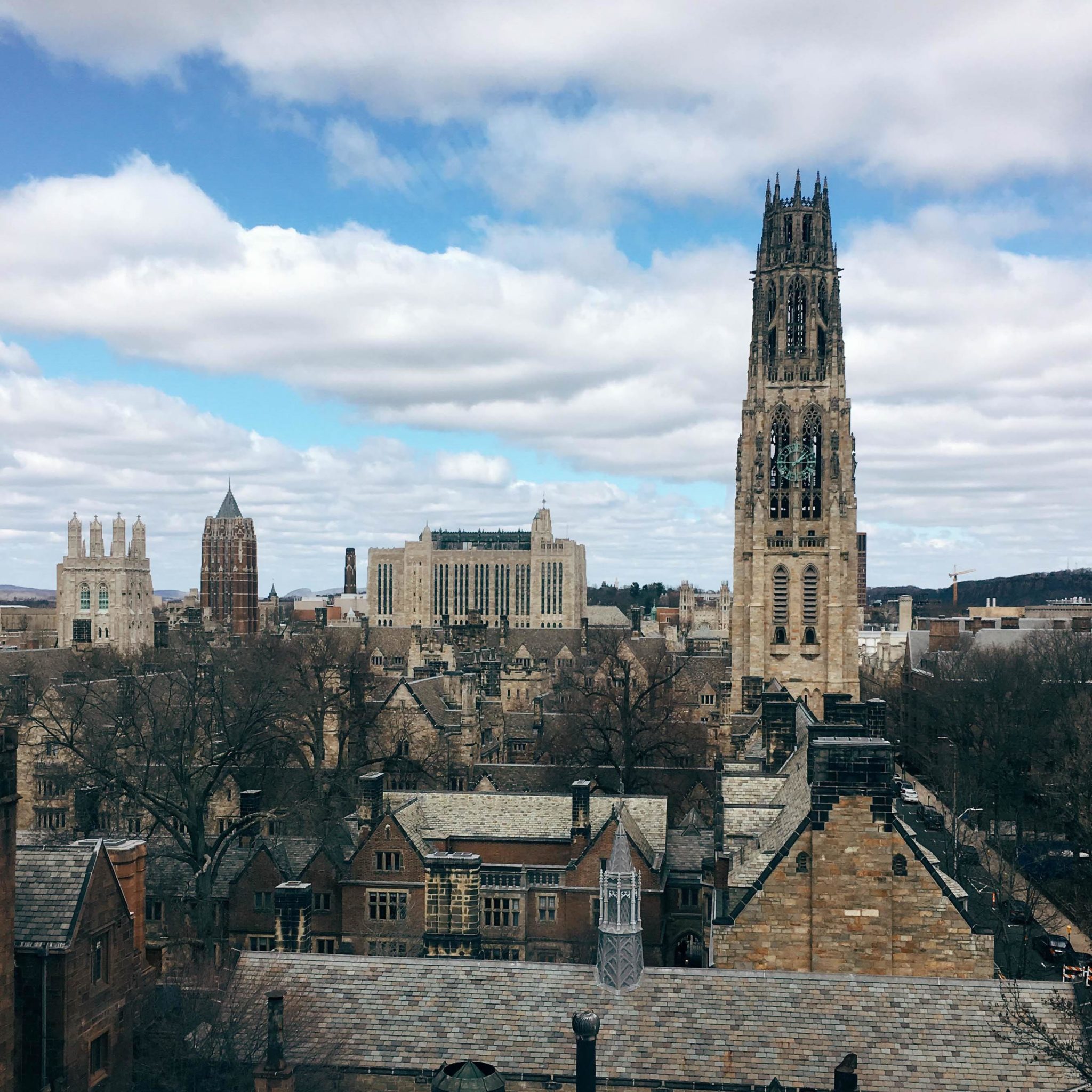Classes to move online until April 5, students asked not to return from spring break
As coronavirus spreads across the world, Yale has elected to conduct classes on the internet until April 5, at the earliest.

Surbhi Bharadwaj
Amid the rapid spread of COVID-19 — the disease caused by the coronavirus — the University announced on Tuesday evening that classes will be held online until at least April 5 and that students should remain home after spring recess.
The announcement came in the wake of similar moves from Ivy peers — including Columbia University, Princeton University and, as of earlier on Tuesday, Harvard University and Cornell University. Posted to the website of the Office of Public Affairs and Communications, the notice said that classes will be held through Zoom, Canvas or other online platforms. The website also said that students who are currently on campus should “make every effort” to return home by March 15.
“As we approach April 5, we will reassess the situation and communicate next steps,” the notice read. “We will provide information sufficiently in advance of that date to allow for planning.”
The website added that while some students may not be able to leave the University by Sunday, Yale will “provide separate instructions for these students.” Yale College Dean Marvin Chun wrote in a later email to Yale College students and their parents and guardians that students living on campus without “a suitable place to stay through April 5” should inform their respective residential college heads and deans, so that the College can continue to offer them support through dining and health services.
“It matters greatly to me that if you are in the very difficult position of not having a safe place to go to off campus, you know that we will take care of you,” Chun wrote.
Graduate and professional students are also being encouraged to remain off-campus and will complete their most of their coursework digitally.
Following in the footsteps of some peer institutions, Yale’s announcement also said that all University-sponsored international travel is now prohibited, and that the University urges that all sponsored domestic travel be postponed.
Earlier on Tuesday, the Office of Undergraduate Admissions also emailed students announcing the cancellation of Bulldog Days, the three-day event during which admitted students explore the University. In the mass email, Dean of Undergraduate Admissions and Financial Aid Jeremiah Quinlan wrote that his office will be working on a “new experiment in online engagement this spring,” and that more updates will be forthcoming.
On Sunday, University Provost Scott Strobel and Yale Health Director Paul Genecin encouraged coordinators to “postpone, cancel, or adjust,” all events expected to attract over 100 attendees, other than classes. According to a flyer posted to the front door of the admissions office, all information sessions, campus tours and student forums are cancelled until April 15.
A Monday email sent to faculty members from the Poorvu Center for Teaching and Learning provided links with detailed guides to online course software. According to a statement sent to the News by Patrick O’Brien-Sevilla, Communications Officer for the Poorvu Center, the Center is “rapidly developing” resources to help faculty members teach online. In an email to the News on Wednesday, O’Brien-Sevilla wrote that the Poorvu Center has logged 1,360 views on their academic continuity website since March 2.
Yale’s policy change comes amid a growing crisis, which has forced a national lockdown in Italy as well as an ongoing international stock plunge. Coronavirus — responsible for the respiratory disease, COVID-19 — can spread from person-to-person standing within about six feet of one another, according to the Center for Disease Control. The CDC believes the virus travels through droplets from an infected person’s coughs or sneezes, butthe Center is still learning how it spreads. According to National Institute of Allergy and Infectious Diseases Anthony Fauci, the process for creating and approving a coronavirus vaccine will take at least 12 to 18 months.
Earlier on Tuesday, Harvard President Lawrence Bacow wrote to students in an email that online instruction would begin on March 23. He added that students would also be encouraged not to return to campus following spring break, which begins on Saturday. Later on Tuesday, Harvard also asked students to vacate their dorms by March 15 — giving students five days to leave campus.
On March 8, Columbia University president Lee Bollinger wrote that classes would be suspended for the following Monday and Tuesday, to give the university time to organize online classes for the remainder of the week. The measures came after a member of the Columbia community was exposed to COVID-19, though Bollinger stated in a press release that the individual had not yet been diagnosed with the disease.
Princeton University will move to virtual instruction on March 23, and the university instructed students to to practice “social distancing.” Cornell University followed suit and told students that instruction would go digital for the remainder of the semester.
Institutions on the West coast, including Stanford University and the University of Washington, made similar announcements regarding online classes as early as last week. Several other schools across the country — including the University of Connecticut — announced that all university-sponsored international travel would be cancelled.
As of Tuesday morning, the CDC has confirmed about 800 cases of COVID-19 in the United States. New York, Rhode Island and multiple other states have now declared states of emergency.
This is a breaking story. Check back for updates.
Updated: March 10, 9:12 p.m.
Valerie Pavilonis | valerie.pavilonis@yale.edu
Matt Kristoffersen | matthew.kristoffersen@yale.edu







